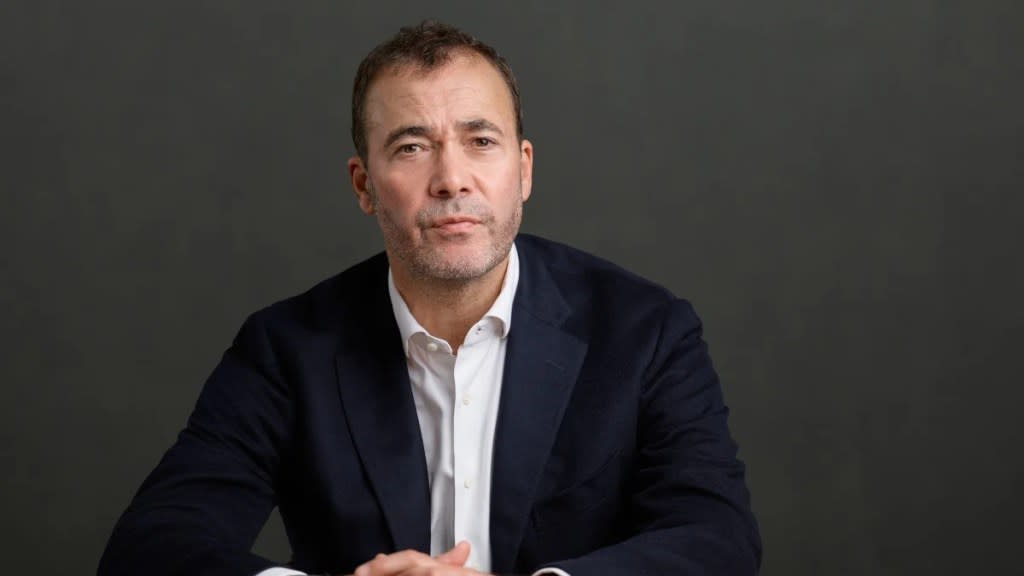Washington Post Publisher Pitches His ‘Leadership’ and ‘Humility,’ Denies Pressuring Editor to Drop Story

The Washington Post’s new publisher, Will Lewis, sent a conciliatory memo to staff Friday (shared with TheWrap) after Lewis sparked deep concerns from both inside and outside his newsroom this week with announcements of leadership changes and a restructuring of the newsroom. The Post also issued a statement disputing some of the coverage from other outlets it’s received this week.
The statement also defends Lewis from criticism of his journalistic integrity, noting, “As a highly experienced Publisher, and an ex Editor and Editor-in-Chief, William is very clear about the lines that should not be crossed and his track record attests to that.”
Whether that is the case will likely remain in dispute following NPR reporting this week how Lewis offered its media reporter David Folkenflik an exclusive interview in order to spike a story about Lewis’ involvement in the United Kingdom’s phone hacking scandal.
“In some quieter moments this week, I have been reflecting on leadership styles, trust and humility,” Lewis wrote in his own statement, before going on to write about broad ideals including leadership, authenticity and integrity.
He shared two emails he’d received from colleagues this week, with one slightly critical but kindly supportive, while the other expressed complete support despite the “disenchantment” of others.
The executive then got to the point, writing, “So, time for some humility from me. I need to improve how well I listen and how well I communicate so that we all agree more clearly where urgent improvements are needed and why.”
Lewis kicked off a turbulent week for the Post on Sunday when he announced a drastic restructuring of the outlet and executive editor Sally Buzbee’s exit. That was followed by a contentious meeting with staff Monday. He told them that their readership had been cut in half from its 2020 pandemic highs and announced the creation of a separate newsroom and new leadership of both the old and new divisions.
The Post’s statement issued Friday also asserted that the New York Times’ coverage of Lewis’ meeting with Buzbee was inaccurate, denying that he interfered in any negative coverage of himself under her tenure. The statement reads, “William did not pressure Ms. Buzbee from publishing any stories during her tenure at The Post, including the stories she brought up to him. To suggest otherwise is completely false.”
As he seeks to get his staff on the same page, Lewis told them that his first step is setting up discussions next week around his so-called “Third Newsroom” strategy, which includes an audience and service journalism-focused newsroom joining the traditional newsroom and their opinion/editorial journalists.
Lewis promised to answer questions from staff, noting, “There was a lot for us all to process at the Newsroom meeting on Monday, so we need more time together to listen and talk it through — please sign up to come.”
The executive also addressed concerns about diversity following his hiring of two new white men as top editors alongside himself, showing a lack of diversity at the Post’s top levels.
“On the concerns many of you raised about creating a diverse workforce that looks more like America, I know I cannot just talk a good game, but need to show it,” Lewis wrote. “I assure you I will.”
He followed that with an ask: “I know trust has been lost because of scars from the past and the back-and-forth from this week. Let’s leave those behind and start presuming the best of intent.”
The language about presuming best intent is a common approach, particularly from managers, when it comes to addressing employee dissent.
“If we do that, you will see where we are going in a different light,” Lewis continued. “We don’t have to agree about everything but we are all dedicated to building the future of The Post, and mapping our way there together.”
Lewis followed by noting that he expected “we will continue to be the focus of some media attention” and sharing the statement they planned to issue to the press. That Post statement concludes, “William’s priority as CEO and Publisher of the Washington Post is to focus on delivering the next phase of the Build It Plan that was announced in May, built around great journalism that keeps customers happy and increases revenue.”
The publisher’s future likely depends on how effectively he accomplishes that final goal of increasing the struggling legacy media outlet’s revenue. Lewis himself followed that statement in his memo by writing, “I want to underscore that last point. I have a profound responsibility as Publisher of The Post, and have no responsibilities more serious than those that come with that position.”
He closed his memo by writing, “Most importantly, together we need to focus on how we can deliver our plan, ensuring we are producing great journalism, making customers happy and growing our revenue. With that focus, we will build the future of The Post together. Thank you for your continued hard work and dedication in what has been a busy week.”
The post Washington Post Publisher Pitches His ‘Leadership’ and ‘Humility,’ Denies Pressuring Editor to Drop Story appeared first on TheWrap.

